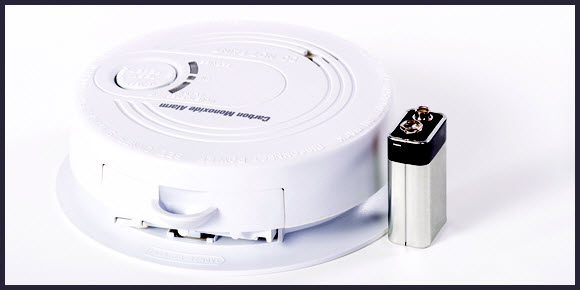With temperatures dropping, the Winnipeg Fire Paramedic Service is reminding residents to be aware of the dangers of carbon monoxide and to purchase a carbon monoxide alarm. If you suspect carbon monoxide in your home, exit immediately and call 911.
Last month, the dangers of carbon monoxide in the home were emphasized, when Winnipeg Fire Paramedic Services was called to a home for a medical emergency. When the home was entered, a high level of carbon monoxide was detected. Officials said a gas-powered generator being operated in the home caused the deadly level of carbon monoxide.
Three residents of the home were hospitalized for carbon monoxide poisoning.
Carbon monoxide is a colourless, odourless and tasteless gas that is a by-product of the combustion process. Dangerous accumulations of carbon monoxide can result from a faulty appliance, clogged chimney, inadequate venting or a buildup of engine exhaust.
The symptoms of minor carbon monoxide poisoning can mimic those of the common flu such as headache, dizziness, nausea, vomiting, mental confusion, weakness, vision or hearing impairment and shortness of breath.
Severe carbon monoxide poisoning is usually the result of prolonged exposure to highly elevated levels of carbon monoxide and can lead to unconsciousness and even death.
Tips for preventing carbon monoxide poisoning:
• Have fuel-burning appliances such as furnaces, wood-burning fireplaces and gas dryers cleaned and checked annually by a qualified service technician.
• Install a carbon monoxide alarm on all levels of your home and outside each sleeping area.
• Never idle vehicles in an attached garage even if the garage door is open.
• Ensure that all fresh-air intake vents, exhaust vents and chimneys are clear of snow, insulation, leaves, bird nests, lint or debris.
• Make sure wood and coal-burning stoves are properly installed and vented.
• Don’t operate gasoline-powered engines, charcoal or propane barbecue/grills, or kerosene stoves in closed spaces or indoors.
• Check forced air fans for proper ventilation.
For more information on carbon monoxide safety, visit Government of Canada — Carbon Monoxide.
For more information on the safe use of natural gas or to report problems with your natural gas service, visit Manitoba Hydro or call 1-888-624-9376 (1-888-MBHYDRO).



